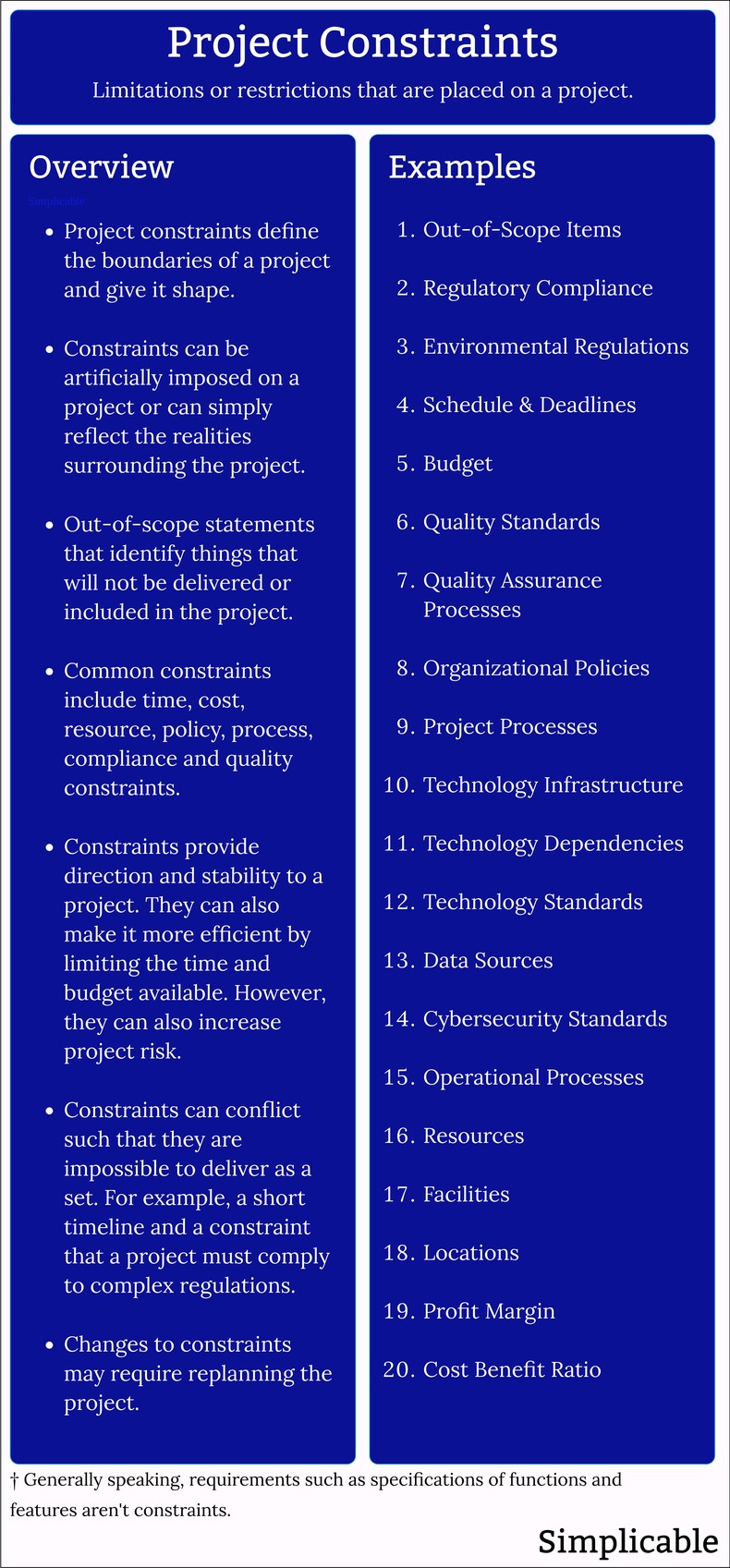Business Constraint
Business constraints include anything that the business can't change that affects a project. For example, a business may have commitments to partners, customers or regulators.Cost
A limited budget is an extremely common constraint.Design
An imposed design approach or condition that is beyond the project to change.Due Diligence
Due diligence is the level of care, judgement and investigation that can be reasonably expected of an organization or professional. As due diligence is a legal requirement or professional ethic it generally can't be skipped to expedite a project.Facilities
A limit or restriction on a facility such as a data center.Human Resources
Staffing constraints such as a fixed size team.Infrastructure
Use of existing infrastructure that has constraints such as capacity limitations, speed or functionality.Legal
Laws, regulations or agreements that restrict project options.Methodology
The imposed requirement to use a particular approach such as a project management methodology.Organizational Constraint
An organizational constraint such as the need to share resources with functional managers.Physical Constraint
A physical constraint such as the size of land or floor space available in a data center.Process Constraint
A requirement to adhere to a process such as a budgeting process with cut-off dates.Procurement
Procurement practices, procedures or processes that must be followed.Quality
A quality condition or specification that is a mandatory requirement.Resource Constraint
Resource constraints such as the power capacity of a data center.Risk Tolerance
The amount of risk that the sponsor is willing to take on.Scope Constraint
The minimum scope of a project such as a particular set of requirements.Technical Constraint
An imposed technology constraint that's beyond the authority of the project to change such as a platform that must be used.Time Constraint
A date that must be met.Summary
Project constraints are limitations and restrictions that are placed on a project in order to give it shape and direction. These are designed to be foundational such that they aren't supposed to change. As such, requirements such as functions and features are generally not considered constraints.
| Overview: Project Constraint | ||
Type | ||
Definition | A definite and fixed limitation or restriction on a project. | |
Related Concepts | ||



































